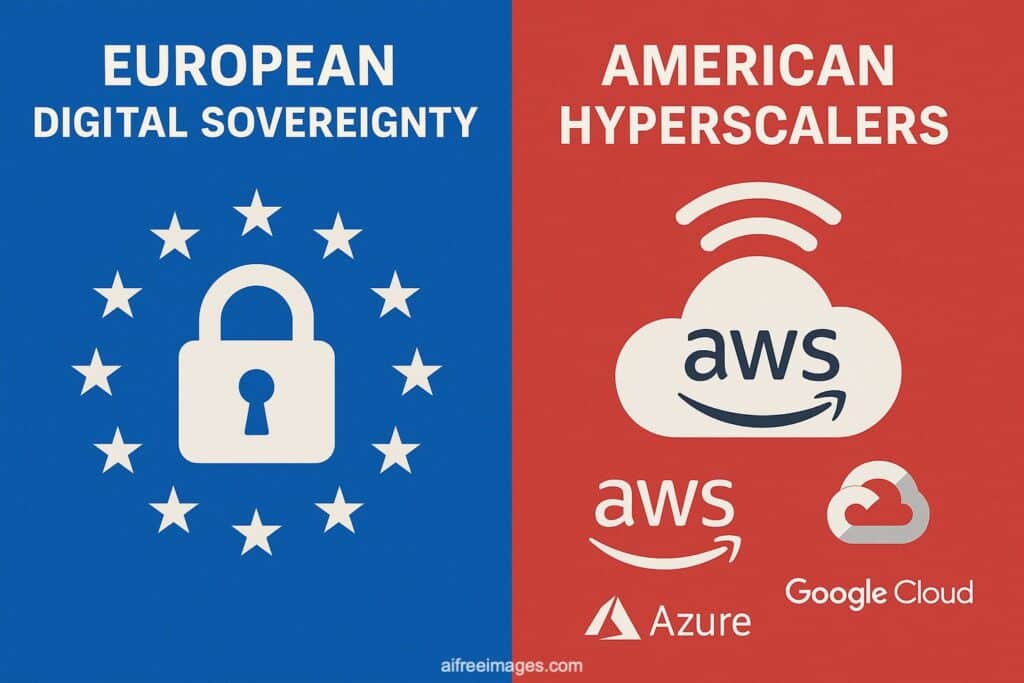The European Union has intensified its efforts to develop a comprehensive digital sovereignty strategy that aims to reduce critical dependence on major US technology providers, known as “hyperscalers”. This initiative responds to growing concerns about technological autonomy, data protection, and national security across the European continent.
US hyperscalers, primarily Amazon Web Services, Microsoft Azure, and Google Cloud Platform, currently dominate the European cloud services market with a market share exceeding 70%. This concentration has raised alarms among European regulators, who consider this dependence a strategic risk to the bloc’s digital autonomy.
The European Commission has established the development of indigenous technological capabilities as a priority objective, especially in critical areas such as cloud computing, artificial intelligence, and semiconductors. To achieve this, it has allocated more than €7.5 billion through the Digital Europe Programme 2021-2027, which seeks to strengthen domestic digital capabilities.
Among the most notable initiatives is the Gaia-X project, a federation of data services and cloud infrastructure that aims to create a European ecosystem alternative to US giants’ services. This project involves European technology companies such as SAP, Siemens, and Orange, among others.
The European strategy also includes strengthening the regulatory framework through legislation such as the Digital Services Act and the Digital Markets Act, which seek to establish stricter rules for major technology platforms and promote greater competition in the sector.
Experts point out that the success of this strategy will require not only financial investment but also effective coordination among member states and the development of specialized talent in emerging technologies. Competition with US hyperscalers, who have decades of advantage and superior financial resources, represents a considerable challenge for European ambitions.
Frequently Asked Questions
What are hyperscalers and why do they concern Europe? Hyperscalers are large cloud service providers like Amazon, Microsoft, and Google that offer technological infrastructure at massive scale. They concern Europe because they control more than 70% of the European market, creating a dependence that may compromise the continent’s digital sovereignty and data security.
How much money has the EU allocated to develop its digital sovereignty? The European Union has allocated more than €7.5 billion through the Digital Europe Programme 2021-2027 to strengthen indigenous digital capabilities, including cloud computing, artificial intelligence, and semiconductors.
What is Gaia-X and how does it intend to compete with US giants? Gaia-X is a European project that seeks to create a federation of data services and cloud infrastructure as an alternative to US hyperscalers. Companies like SAP, Siemens, and Orange participate, and its goal is to offer services that comply with European standards for privacy and data sovereignty.
What are the main challenges to achieving European technological independence? The main challenges include competition with companies that have decades of advantage and greater financial resources, the need for coordination among 27 member states, the development of specialized talent, and the creation of a competitive technological ecosystem from scratch.

